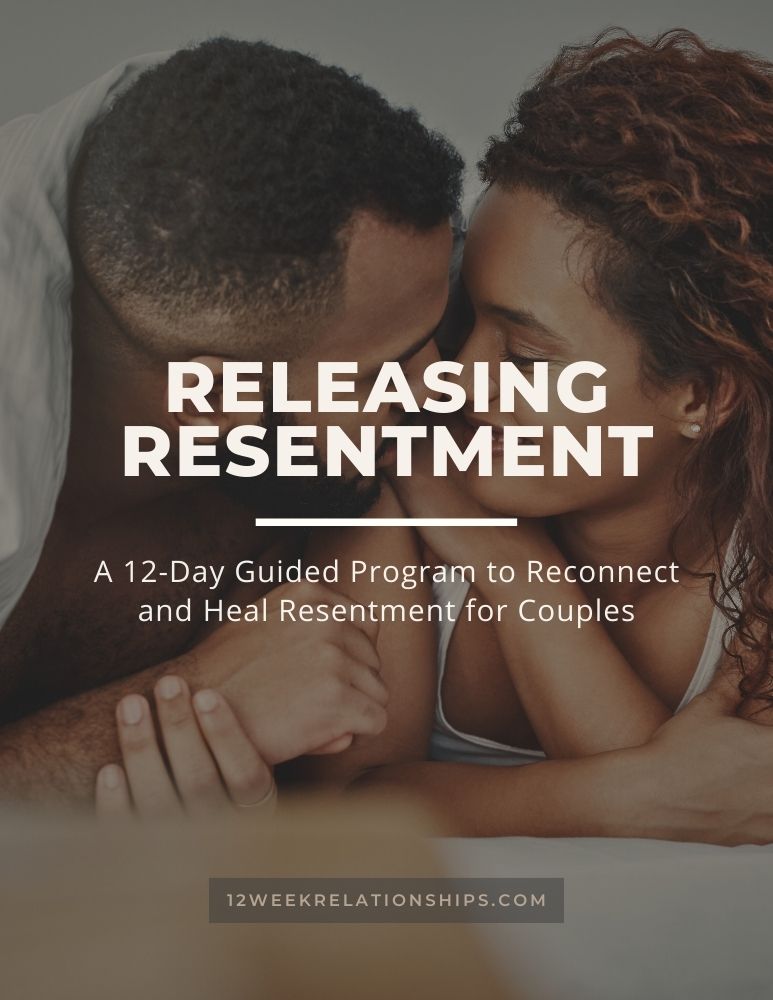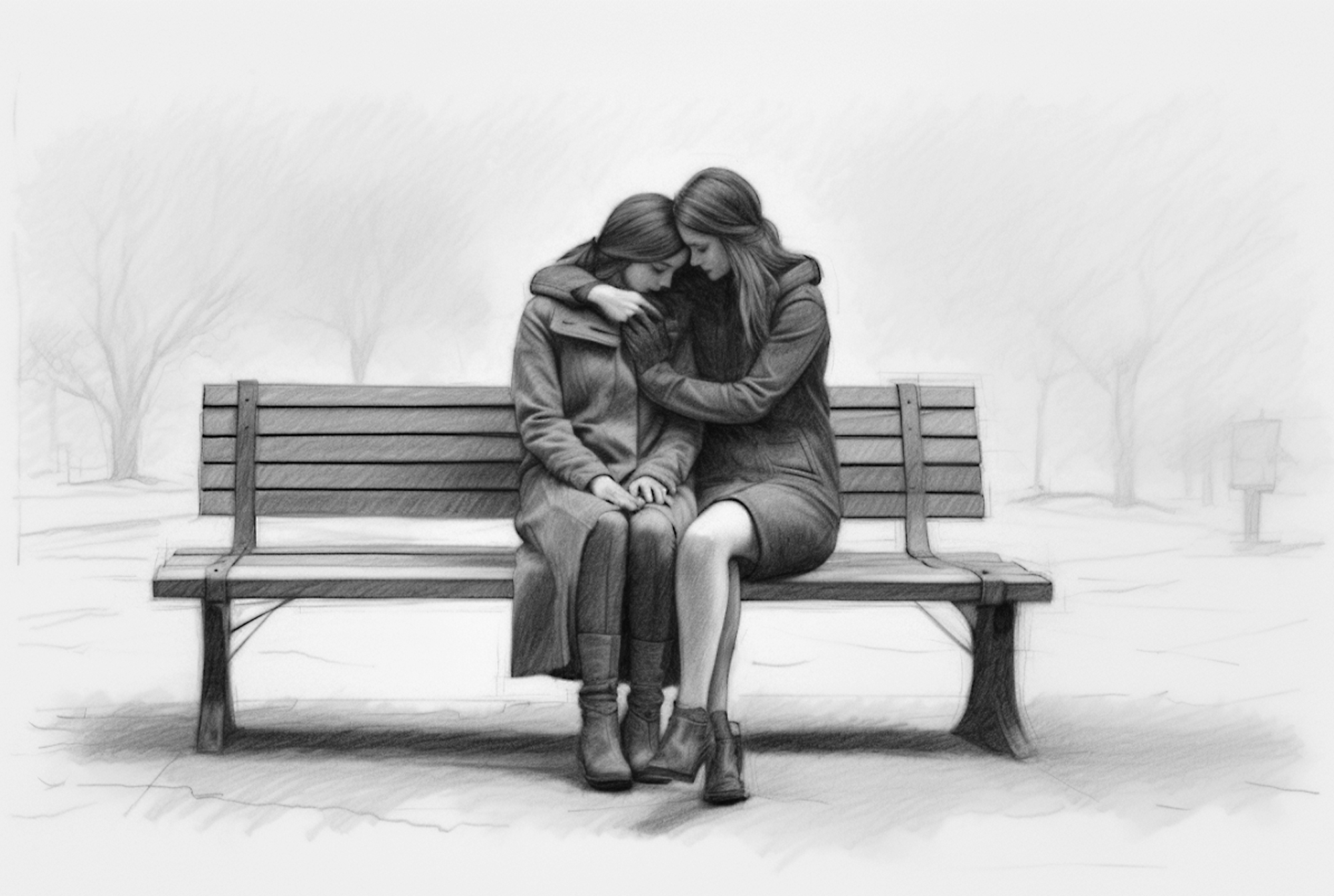If you've been in couples therapy for any extended period of time, you've no doubt asked yourself the question, "Does couples therapy ACTUALLY WORK!?"
You know the feeling right?
You're in session. You share your concerns and frustrations about the relationship. Your partner shares their concerns and frustrations about the relationship. Then the both of you look to the therapist for the solution...
They respond with something typically cliche like, "You both need to communicate better with each other.” And as unsatisfying as this answer is, both of you push through because you want to make the relationship work.
With time, you both learn how to communicate your anger more effectively. Several years pass by, one session after another. Sure, you've both learned new tools and insights that have helped with day-to-day interactions. But when it comes down to the things that truly matter in your relationship, nothing has really changed for the better.
It's in such moments that we rightfully ask, "Does couples therapy work?"
Because you're right to be frustrated, and you're absolutely right to question the process.
In this article, we're going to talk about the effectiveness of couples therapy. I'm going to present you with a reality that's most certainly going to shock you.
Couples Therapy Fails 85% of its Clients
I know that section heading is frustrating to read, but it's true.
I feel your frustration because I felt the same damn thing.
Once we get off the hamster wheel and assess how much therapy has worked for us, most of us will conclude that “it has simply failed.”
Yes, there were some insights and there was a place to release concerns, but ultimately, it never reached the core issues of our relationship problems. And if this is the destination that you arrived at, you most certainly are not alone. Not by a long shot.
Research from Roesler (2020) shows that couples therapy fails 85% of the people that it serves.
Yes, friends. You read that correctly.
Conservatively speaking, traditional therapy and couples counseling will fail FOUR out of the FIVE clients that it serves in creating lasting change.
The question then becomes “Why?”
Why Does Counseling and Couples Therapy Fail?
Just like you, we wanted to know why this was happening.
Through the TWR Institute, we gathered a research team and ended up compiling 75 peer-reviewed research articles. Within the piles of research and data, we arrived at two primary factors that answer the question, “Why does couples therapy tend to fail?”
- Treatment barriers on behalf of the therapist
- Treatment barriers on behalf of the client
More simply put, couples therapy tends to fail because of the lack of expertise on behalf of the therapist, or problems that the clients have in implementing the solutions.
Let’s get into each factor and break it down even more. We'll start with data pointing out issues in terms of the therapist and the treatment they provide.
Treatment Barriers on Behalf of the Therapist
From all of the articles we gathered, we found five primary barriers or problems on behalf of the therapist that affects positive client outcomes.
We'll discuss each of these below.
1. Couples therapists are underqualified.
Research from Pentel and Baucom (2021) found that 95% of the therapists who graduated from an accredited graduate counseling program, did not feel properly trained to provide treatment to couples.
Meaning, while they graduated and had the appropriate credentials and hours, these therapists still felt as though they didn't have enough tools in the clinical environment. Responding therapists even went on to say that they would often rely on “self-guided” techniques that they believed would work. In other words, they'd often default to giving their clients advice from their own personal experiences.
2. Couples therapists do not follow a guided framework.
A study by Carrol et al (2021) found that each couple’s treatment would often include short-term solutions like improving communication, rather than focusing on the long-term problems. But in order for treatment to be effective, therapists must focus on the concept of Long-Term Conditions or LTCs.
Meaning rather than focusing on providing solutions to short-term symptoms, therapists need to be focusing on long-term change which requires deep-rooted emotional work.
Unfortunately, clients are often never getting to this place in their treatment because therapists fail to follow a consistent guided framework. Instead of following a proven and consistent framework for treatment, the therapist is going "off script" to treat problems that they feel are the most significant.
What the therapist tends to deem "significant" are simply the symptoms or problems that are most visible. But these surface-level symptoms are rarely ever the root problem, but rather just a manifestation of that problem.
3. The power of the therapist is too high.
Findings from Janusz et al (2021) discuss how the therapist will often take on a judge's role during a couple's session. This eventually leads to the therapist taking a side rather than having the ability to mediate and solve problems.
The term for this is known as a “split alliance”, meaning that once one partner gets the therapist to side with them, it leads to dysfunction within the session, and eventually, the couple will end up dropping out of treatment.
4. There is no set definition of intimacy or how to approach it.
Rober et al (2015) discussed the complexity of couples therapy and the many variables/challenges that need to be implemented for healing to take place. Their research cites the need for being able to emotionally hold space, set boundaries, and distinguish between individual and couple’s issues, All of this must happen while being able to push the session forward.
The problem is there is no clear and set direction of how or where the direction of intimacy is.
5. Therapists often overvalue the progress of the couple.
The work of Owen et al (2019) found therapists often focus on reducing negative communication with couples. When they did, it would be treated as a huge success. Their research went on to show that the reduction of negative communication with couples actually leads to greater emotional disconnection because the root of their problems was not properly addressed.
This again goes back to the problem of therapists tending to focus on the most visible symptoms, rather than on the source of those symptoms. Because the therapist sees the couple communicate more effectively and argue less, they'd think it their treatment was working. But in reality, the couple's issues were still right there under the surface, they had simply become more adept at hiding it.
Now let's talk about client-side issues that prevent treatment from being effective.
Treatment Barriers on Behalf of the Client
1. Couple’s treatment does not address Attachment issues.
Siegel (2020) discussed the concept of predictive processing, which basically means that your attachments or baseline behaviors as a child determines your construct of love when you become an adult. According to Mcnelis and Segrin (2019), their research found a 92% correlation between divorce and the insecure attachments that come out during a marriage.
Translation, your past dictates a lot of what you do in your current relationships, and they need to be addressed. Most often times, the individual will blame their partner for not meeting their emotional needs, when in truth that perceived emotional need is a wound that their partner cannot solve. It is a childhood wound that they are asking their adult partner to solve for them! Let that sink in. This is why individuals will often cycle through relationships over and over because they are incorrectly labeling their childhood wound as an adult emotional relationship void.
2. Couple’s treatment does not address trauma issues that each partner has.
Hubbard and Harris (2020) found that many in relationships suffer from trauma or severe mental health issues, and the likelihood of having it addressed properly within a couple’s relationship is often not done. This means that in treatment, the couples’ issues and the individual partner’s issues are all treated separately, when in truth, all of it is connected to one another.
For example, if someone is suffering from PTSD, the usual intervention is to make sure that this partner is getting the individual treatment that they need, and from a couple's standpoint, only couple's issues are only addressed. This sounds good in theory but the truth is, if your partner is suffering from a mental illness or trauma, that is directly going to affect the relationship and that needs to be discussed and addressed. To treat it as if the problem is separate is providing an emotional disservice to the partner who is providing support, and an overall dishonesty to what needs to be addressed relationally.
3. Treatment does not address the crisis of the couple.
The research of Fraenkel (2019) found that couples often come in for treatment when divorce or the relationship is at its breaking point, and the truth is, many couples’ therapists do not have the skills nor the ability to effectively handle the crisis. And instead of dealing with it head-on, the therapist will often treat the couple as if there is no crisis. This level of denial eventually causes the couple to terminate treatment and most likely end the relationship.
I can speak on this firsthand. The majority of couples that seek our services are coming because they are on the verge of divorce, or if not married, they are deciding whether to stay or leave the relationship. It is in these moments that each partner's hurts, frustrations and resentment all come out. As any crisis negotiator will tell you, when addressing a crisis, it is not about solving all of their problems, but it is about getting them back to their previous level of functioning before the crisis occurred. To do that, it requires being able to navigate all of the emotions that each partner is feeling, holding emotional space, and at the same time providing a structure so that a healthier level of coping can take place. Bottom line, if your therapist cannot address your crisis when it is required to do so, they are not equipped to help you.
4. Couple’s treatment does not match the evolution of the couple.
The work of Carr (2019) found that couples’ therapy requires the use of multiple forms of treatment and being able to use them at the appropriate times. Some of the modalities required include brief-oriented models, family therapy models, attachment work and understanding of the medical model.
What this means is that treating a couple involves many stages. It involves each partner being accountable for what they bring into the relationship, it requires addressing the actual couple's issues that need to be addressed and it involves being able to see their current life circumstances and being able to integrate all of it for them. This requires as a therapist, being able to navigate the many emotional stages they will go through, and help them to progress and move towards having a healthy relationship. Carr's work points to the fact that most couples' treatment will reach an emotional end point of progress, because in truth the therapists capacity to improve it is limited.
5. You do not know who you are going to get!
Banham and Schweitzer (2016) in their findings reported that not all therapists are equal. The truth is there are some really good ones and a lot of bad ones out there. Also, their work pointed to the fact that couples therapy in general has no real fluidity or standardization in terms of treatment and approaches.
This is why it so important to be mindful and proactive when it comes to finding the right therapist. The truth is, if your marriage is on the brink, a bad therapist over a few sessions can ruin your relationship and send you to divorce immediately. Even if the relationship can be saved, the wrong therapist can do irrevocable damage. This work highlights the danger of working with a bad therapist.
Conclusion
So, to sum up, if you are having or have had issues with couples’ therapy, it is our hope that this provides you with a form of validation and understanding. When we began this project, the goal of our research was never about bashing or pointing the finger at this industry, but it was truly about just wanting to find answers.
We feel that we have done so and we are very proud of what we created with 12-Week Relationships!











